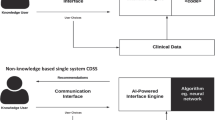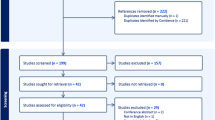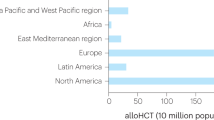Abstract
The psychosocial assessment of candidates for transplantation (PACT) scale was completed before the transplant on 120 patients who underwent allogeneic transplant from November 2003 to June 2007. The PACT has eight subscales, each rated on a 5-point scale, and an initial and final rating independently based on the rater's overall impressions of the candidate's acceptability for transplant. This exploratory study assessed the clinical utility of the PACT scale for psychosocial screening in allogeneic BMT. Associations of the PACT subscales and the final rating with sixteen post transplant medical outcomes were examined using the Jonchkheere–Terpstra test, the Cochran–Armitage test or the Cox proportional hazards analysis. Significant relationships (P⩽0.05) between PACT subscales and medical outcomes are as follows: better compliance with medications and medical advice associates with lower in-hospital mortality, shorter length of stay and readmission duration, and faster neutrophil and platelet engraftment; better scores on drug/alcohol use associates with faster platelet engraftment; better scores on family/support system availability and on relevant knowledge and receptiveness to education associates with decreased risk of mortality. The final rating score and medical outcomes are not significantly related; however, study findings underscore the prognostic value of the PACT subscales and the potential utility for screening of BMT candidates.
This is a preview of subscription content, access via your institution
Access options
Subscribe to this journal
Receive 12 print issues and online access
$259.00 per year
only $21.58 per issue
Buy this article
- Purchase on Springer Link
- Instant access to full article PDF
Prices may be subject to local taxes which are calculated during checkout
Similar content being viewed by others
References
Schulz-Kindermann F, Hennings U, Ramm G, Zander AR, Hasenbring M . The role of biomedical and psychosocial factors for the prediction of pain and distress in patients undergoing therapy and BMT/ PBSCT. Bone Marrow Transplant 2002; 29: 341–351.
Syrjala KL, Chapko MK, Vitaliano PP, Cummings C, Sullivan KM . Recovery after allogeneic marrow transplantation: prospective study of predictors of long-term physical and psychosocial functioning. Bone Marrow Transplant 1993; 11: 319–327.
Sullivan AK, Szkrumelak N, Hoffman L . Psychological risk factors and early complications after bone marrow transplantation in adults. Bone Marrow Transplant 1999; 24: 1109–1120.
Gregurek R, Labar B, Mrsic M, Batinic D, Ladika I, Bogdanic V et al. Anxiety as a possible predictor of acute GVHD. Bone Marrow Transplant 1996; 18: 585–589.
Grulke N, Larbig W, Kächele H, Bailer H . Pre-transplant depression as risk factor for survival of patients undergoing allogeneic haematopoietic stem cell transplantation. Psycho-Oncology 2008; 17: 480–487.
Hoodin F, Uberti JP, Lynch TJ, Steele P, Ratanatharathorn V . Do negative or positive emotions differentially impact mortality after adult stem cell transplant? Bone Marrow Transplant 2006; 38: 255–264.
Grulke N, Bailer H, Hertenstein B, Kächele H, Arnold R, Tschuschke V et al. Coping and survival in patients with leukemia undergoing allogeneic bone marrow transplantation—long term follow-up of a prospective study. J Psychosomatic Res 2005; 59: 337–346.
Hoodin F, Weber S . A systematic review of psychosocial factors affecting survival after bone marrow transplantation. Psychosomatics 2003; 44: 181–195.
Colon EA, Callies AL, Popkin MK, McGlave PB . Depressed mood and other variables related to bone marrow transplantation survival in acute leukemia. Psychosomatics 1991; 32: 420–425.
Loberiza FR, Rizzo JD, Bredeson CN, Antin JH, Horowitz MM, Weeks JC et al. Association of depressive syndrome and early deaths among patients after stem-cell transplantation for malignant diseases. J Clin Oncol 2002; 20: 2118–2126.
Foster LW, McLellan LJ, Rybicki LA, Sassano D, Bolwell BJ . Survival of allogeneic bone marrow transplant patients: The relative importance of in-hospital lay care-partner support. Journal of Psychosoc Oncol 2004; 22: 1–20.
Andrykowski MA, Brady MJ, Henslee-Downey PJ . Psychosocial factors predictive of survival after allogeneic bone marrow transplantation for leukemia. Psychosom Med 1994; 56: 432–439.
Molassiotis A, van den Akker OBA, Milligan DW, Goldman JM . Symptom distress, coping style and biological variables as predictors of survival after bone marrow transplantation. J Psychosomatic Res 1997; 42: 275–285.
Neuser J . Personality and survival time after bone marrow transplantation. J Psychosomatic Res 1988; 32: 451–455.
Tschuschke V, Hertenstein B, Arnold R, Bunjes D, Denzinger R, Kaechele H . Associations between coping and survival time of adult leukemia patients receiving allogeneic bone marrow transplantation: Results of a prospective study. J Psychosomatic Res 2001; 50: 277–285.
Chang G, Antin H, Orav EJ, Randall U, McGarigle C, Behr HN . Substance abuse and bone marrow transplant. Am J Drug Alcohol Abuse 1997; 23: 301–308.
Hoodin F, Kalbfleisch KR, Thornton J, Ratanatharathorn V . Psychosocial influences on 305 adults' survival after bone marrow transplantation; depression, smoking, and behavioral self- regulation. J Psychosomatic Res 2004; 57: 145–154.
Foster LW, McLellan LJ, Rybicki LA, Dabney J, Welsh E, Bolwell BJ . Allogeneic BMT and patient eligibility based on psychosocial criteria: a survey of BMT professionals. Bone Marrow Transplant 2006; 37: 223–228.
Olbrisch ME, Levenson JL, Hamer R . The PACT: a rating scale for the study of clinical decision making in psychosocial screening of organ transplant candidates. Clinical Transplantation 1989; 3: 164–169.
Twillman RK, Manetto C, Wellisch DK, Wolcott DL . The Transplant Evaluation Rating Scale. A revision of the psychosocial levels system for evaluating organ transplant candidates. Psychosomatics 1993; 34: 144–153.
Hoodin F, Kalbfleisch KR . Factor analysis and validity of the Transplant Evaluation Rating Scale in a large bone marrow transplant sample. J Psychosomatic Res 2003; 54: 465–473.
Hoodin F, Kalbfleisch KR . How psychometrically sound is the Transplant Evaluation Rating Scale for bone marrow transplant recipients? Psychosomatics 2001; 42: 490–496.
Presberg BA, Levenson JL, Olbrisch ME, Best AM . Rating scales for the psychosocial evaluation of organ transplant candidates. Comparison of the PACT and TERS with bone marrow transplant patients. Psychosomatics 1995; 36: 458–461.
Foster LW, McLellan L, Rybicki L, Tyler T, Bolwell BJ . Ethical reasoning about patient eligibility in allogeneic BMT based on psychosocial criteria 2009 (in press).
Author information
Authors and Affiliations
Corresponding author
Rights and permissions
About this article
Cite this article
Foster, L., McLellan, L., Rybicki, L. et al. Utility of the psychosocial assessment of candidates for transplantation (PACT) scale in allogeneic BMT. Bone Marrow Transplant 44, 375–380 (2009). https://doi.org/10.1038/bmt.2009.37
Received:
Revised:
Accepted:
Published:
Issue Date:
DOI: https://doi.org/10.1038/bmt.2009.37
Keywords
This article is cited by
-
Evaluation of pre-transplant risk assessments in allogeneic hematopoietic cell transplant
Bone Marrow Transplantation (2022)
-
Psychosocial Assessment of Candidates for Transplantation scale (PACT) and survival after allogeneic hematopoietic stem cell transplantation
Bone Marrow Transplantation (2019)
-
Patient eligibility for hematopoietic stem cell transplantation: a review of patient-associated variables
Bone Marrow Transplantation (2019)
-
Psychosocial Assessment of Candidates for Transplant (PACT) as a tool for psychological and social evaluation of allogeneic hematopoietic cell transplantation recipients
Bone Marrow Transplantation (2019)
-
Another reason to encourage psychosocial risk assessment in hematopoietic cell transplantation
Bone Marrow Transplantation (2018)



